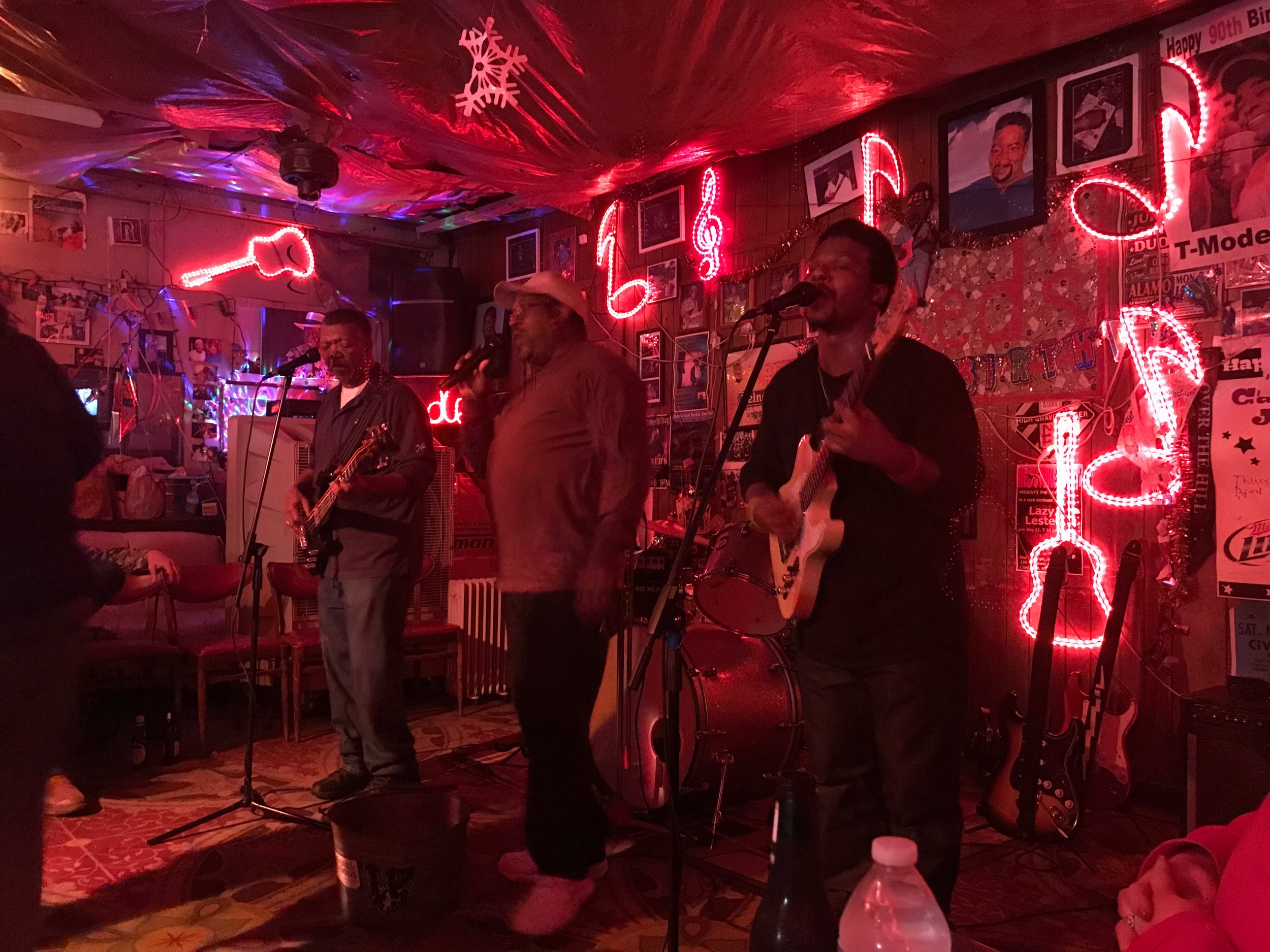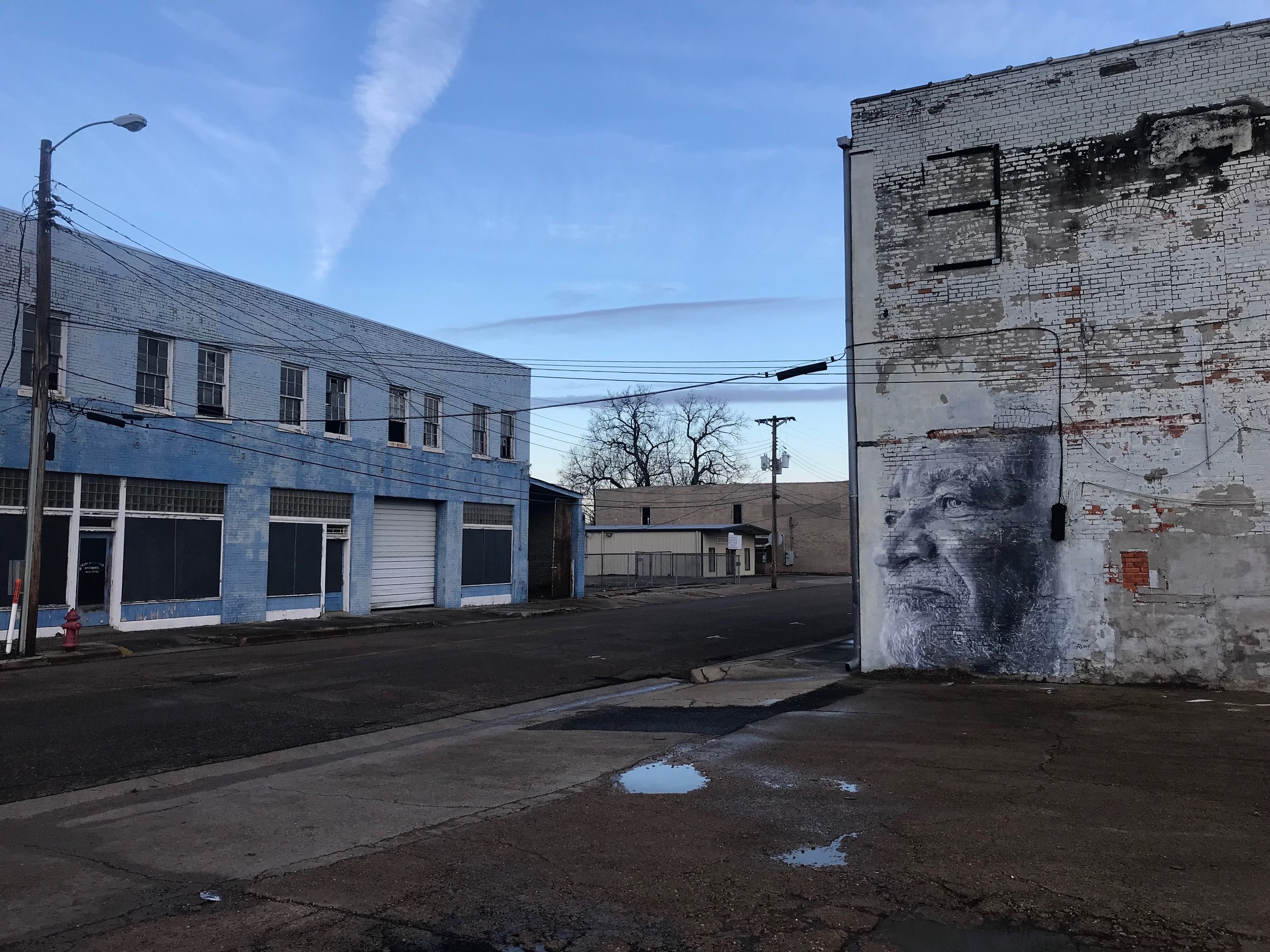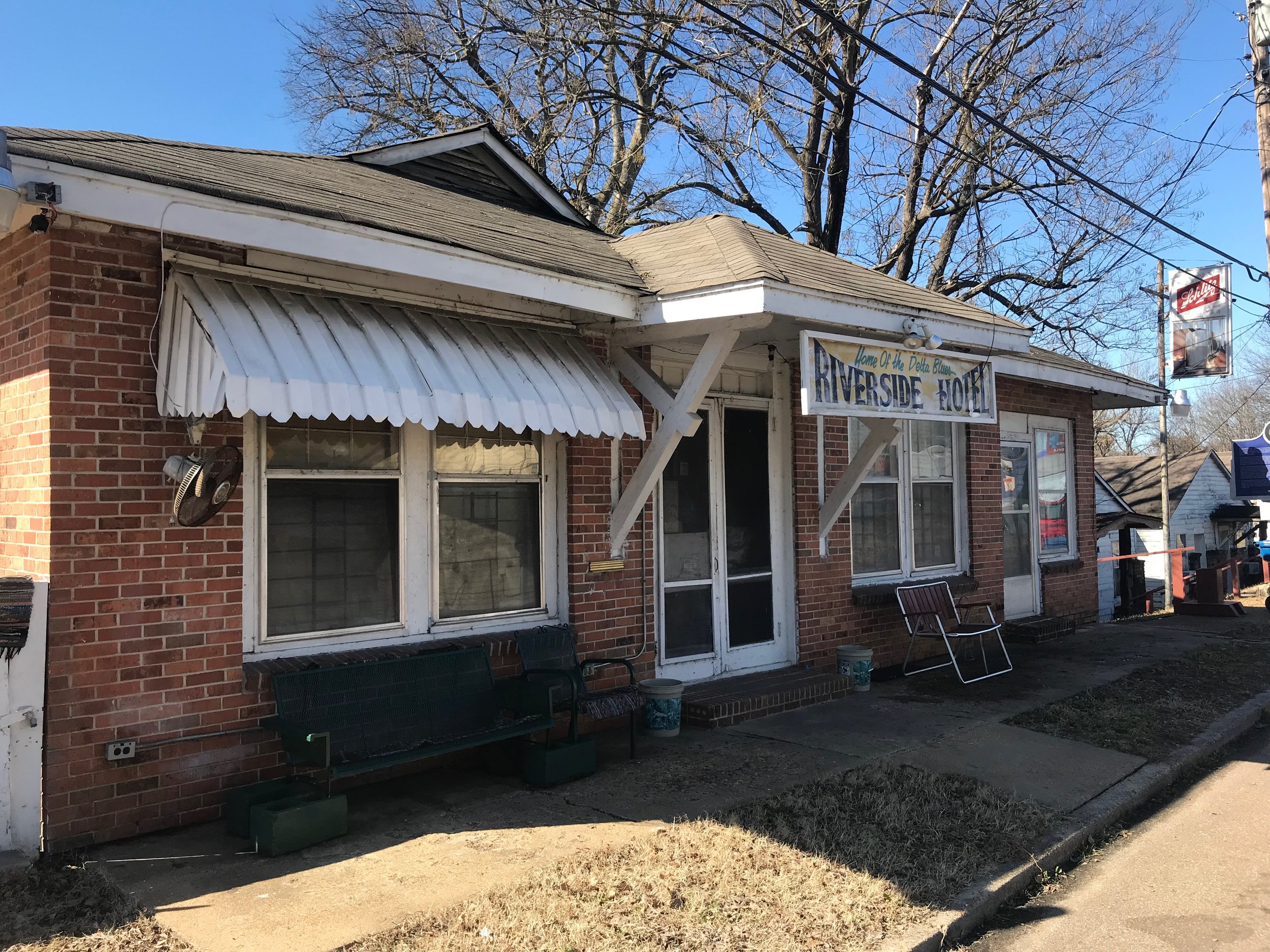Mississippi Delta blues
Can music save Clarksdale?
By Rick Holmes
Feb. 9, 2018
Clarksdale, Miss. - The Mississippi Delta’s got the blues.
There have been periods of prosperity for the few who have owned the flat, fertile land between the Mississippi and the Yazoo. When cotton was king, there was gold for the nobility. But for the majority – slaves, then sharecroppers – this has always been a hard place.
Machines now pick cotton, not people. Jobs and people have been leaving the Delta for decades. A dozen Delta counties have lost 50 to 75 percent of their population since the 1940s. Those who remain are mostly African American and mostly poor.
But the Mississippi Delta also has The Blues. It was born here, in sharecropper’s shacks and rough-and-tumble juke joints.
The people who invented blues here took it elsewhere. W.C. Handy brought it to Beale Street in Memphis. Muddy Waters brought it to Chicago, and from there, around the world. B.B. King brought it to the top of the charts. Clarksdale boys Ike Turner and Sam Cooke brought it to rock ‘n’ roll, with help from Elvis Presley, born in Tupelo, two hours east of here.
The Delta blues DNA runs through the veins of a half-dozen genres. It’s got fans on every continent. But it hasn’t done much for its birthplace. The Mississippi Delta is still a hard place.
In recent years Mississippi has tried to capitalize on its musical heritage. It created the Mississippi Blues Trail, with maps and hundreds of markers for those making blues pilgrimages. Small towns have small museums honoring local blues legends. No city has worked harder at turning the blues into an economic lifeline than Clarksdale.
When it comes to the blues, Clarksdale has credentials. It’s the site of the famous crossroads – the junction of Highway 61 and U.S. 49 – where blues legend Robert Johnson was said to have traded his soul to the devil for the ability to do things with the guitar no one had ever heard before. It’s got one of the best blues museums. An impressive list of musicians came through here. Clarksdale claims Tennessee Williams, too, but that’s another story from the wealthy side of town.
Billy Howells, who runs Clarksdale’s Delta Bohemian Tours, recalls no bragging about being the birthplace of the blues when he was growing up in Clarksdale. That came later, after the jobs dried up, crime shot up, and the middle class abandoned the Delta.
Then blues fans, most of them white, discovered Clarksdale. The money they brought in started as a trickle then grew to a small stream. People from as far away as Australia became regular visitors, then investors. Actor Morgan Freeman, who grew up in the Delta, started doing business in the town. “He asked where he could hear some music, and was told there really wasn’t any,” Howells says. “So he opened Ground Zero, and a gentle renaissance began.”
Clarksdale now promises you can find live blues there 365 days a year. I found it on a Saturday night at Red’s, described by a transplant from New Jersey as “the last real Mississippi juke joint in the universe,” where all the tables are wobbly and none of the chairs match. I found live blues over breakfast the next morning at the Bluesberry Café.
Delta blues culture – rough-edged, laid back, dirty and a little dangerous – is part of the attraction, and some of it is contrived. That broken-down couch on the porch of Ground Zero was put there for show, not comfort. On a plantation south of town entrepreneurs have created the “Shack Up Inn,” a collection of real sharecropper shacks and seed bins outfitted with indoor plumbing and wifi, set amid dirt roads and rusty old tractors. There’s a performance venue and a gift shop, of course, and it’s said to be a favorite spot for musicians and Hollywood stars.
If the Shack Up Inn feels a little like a rural poverty theme park, not to worry: There’s no shortage of authentic poverty in Clarksdale. The potholes and abandoned buildings aren’t just for show. In the old juke joint tradition, some venues only open when the fields are plowed and the electric bills paid. An upscale restaurant opened by Morgan Freeman had to close. This month the Kroger supermarket is closing for good. Jobs and people are still leaving town.
Can the blues save Clarksdale? It’s a long shot. The original black blues musicians are in their 80s, and the white aficionados who have sustained the blues are in their 60s. In a world of hip-hop and country music, the small niche occupied by traditional blues is shrinking.
But Delta blues still has a home in Clarksdale, and its worth a visit by anyone who loves American music.
Rick Holmes can be reached at rick@rickholmes.net. You can follow his journey at www.rickholmes.net. Like him on Facebook at Holmes & Co, on follow him on Twitter @HolmesAndCo.






